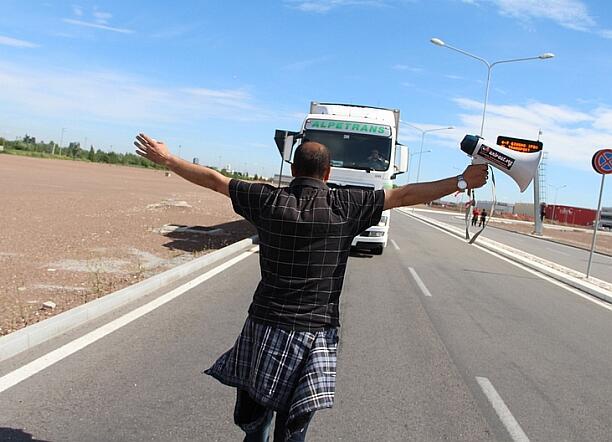Mobilizing borders: reshaping Bologna’s territory through migrants struggles
by Niccolò Cuppini, Mattia Frapporti, and Maurilio Pirone
(University of Bologna)
Twelve months ago, at the Teaching the Crisis: geographies, methodologies, perspective Summer School, we discussed about logistics struggles and then we have written the paper “Logistics and crisis: the supply chain system in the Po valle Region” (link). Starting from the struggles occurred in the last few years in the North of Italy, we argued that logistics plays a central role in “both the establishment of new and mobile forms of territoriality and the production of subjectivity”. Actually, we took logistics as a privileged point of departure for analyzing some aspects of nowadays global capitalism, such as the new form of labour exploitation, the territory that “deborders” territoriality, and the new forms of antagonistic subjectivation processes.
Taken that work as a starting point, this year we want to play a reverse shot, turning upside down the perspective. Our new research’s question is: what are the historical, social, geographical and subjectival conditions that have made possible the arise of the logistics struggles? In order to answer this question we need to restrict the field and to zoom on Bologna. This city is a useful case study, one of the most interesting place to get such analysis because it has been a barycenter of territorial transformation, using the “territorial” concept in an expanded way: as an assemblage of power relationships, social, urban…
First of all, we will try to develop an historical background. From an emigration country, through the “internal” migration, till the “external” one, the Italian borders have represented an unstable limit which has been constantly criss-crossed by different migration flows. How this dynamic has shaped nowadays logistics as a field where the the migrant labour force is prevailing? When did this tendency begin? Starting from these questions, we will focus on the composition of the migrant workers in the logistics sector. In particular, as an entry point to this question, we will show how the borders of nationality, gender and “race” work within the logistic warehouse as devices of inclusion, exclusion, hierarchization, segmentation and exploitation of the labour force. Our aim is to highlight the deep ambivalence of this device: both a technology of control and a source of resistance.
However we do not want to limit our inquiry only to labor-capital conflict: from the working times and spaces to the living times and spaces, how territory is perceived and transformed by migrants? In other words: moving out from the storage unit, we will listen to the voices of the migrants coming from the meeting points, houses and other spaces of sociality and politics, to provide the migrants perception of Bologna. Eventually, our hypothesis is that logistics struggles are bringing into question the strengthened territorial and political geographies: through a cartographical exercise we will show how the boundaries between center and periphery are criss-crossed by the migrants mobilities and their arising political presence given by the strength collected through the struggles.

